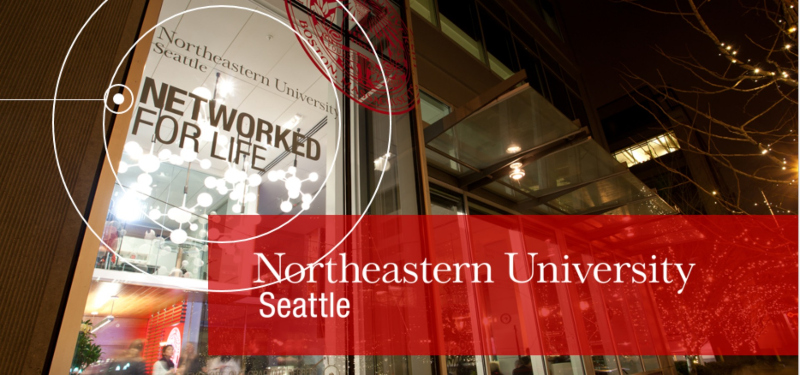
Northeastern University, based in Boston and with a branch in Seattle, has announced expansion to Portland, Maine. A $100 million donation from technology entrepreneur David Roux, former chairman of Silver Lake, the world’s largest technology-focused private equity firm, will seed the new research institute, which will focus on artificial intelligence and machine-learning applications for digital and life sciences. Portland hopes to become a new technology hub, thanks to this stimulus. As UW historian Margaret O’Mara recently wrote in Post Alley, Silicon Valleys are popping up all over the landscape.
Might this development be a good idea for Seattle, emulating Boston as an academic and research Mecca? Two developments are pertinent.
One is the creation in 2013 of Northeastern’s branch campus, located in the heart of tech-heavy South Lake Union. Northeastern’s home campus is hemmed in geographically, and it is also in a region with far more students than internships. The Seattle campus needs only a small footprint since many of the classes are online. And Seattle is a city full of tech internships (Amazon is right across from the Northeastern branch) and demand for tech instruction.
Another example is the creation of the Global Information Exchange (GIX) program in Bellevue, with its focus on technology entrepreneurship. The three sponsors of this new program are Tsingua University, a leading technology university in China; Microsoft, a major funder; and the University of Washington. Microsoft needs energized employees, and China needs to instill entrepreneurial confidence in its students.
One aspect of these projects is the strong, guiding hand of the donor. Another is the close partnership of academics and business, particularly where there are many internships available (a key to getting a job in tech). A third is the growing trend of universities branching out to other cities, spreading their reputation and harvesting applicants and donors.
Seattle has a good start in this game of attracting academic partners, since it has the base of U.W., Seattle U. and Seattle Pacific University, as well as plenty of technology jobs. It’s a good college town, much like Boston, though costs for student housing are a problem. A bigger question though, is whether the Seattle region, riding high for now, has the foresight and/or the appetite to think about future economic development.
Discover more from Post Alley
Subscribe to get the latest posts sent to your email.

A source with direct experience in academic administration sends along these comments and warnings.
A key to the success of a new branch campus is the breadth of sustained support from main campus, where deans and faculty are already very busy on home campus programs and priorities.
Over time, many of the students at these branches will be foreign students, which mitigates the value to the host region.
The real goal is to attract faculty and researchers to the branch campus, and over time develop research expertise and innovation in this new location. That is what is really important to economic development efforts, and what companies are interested in, along with meeting their workforce needs.
Finally, political leadership must play a role in recruiting new universities to a region, as happened in Seattle.